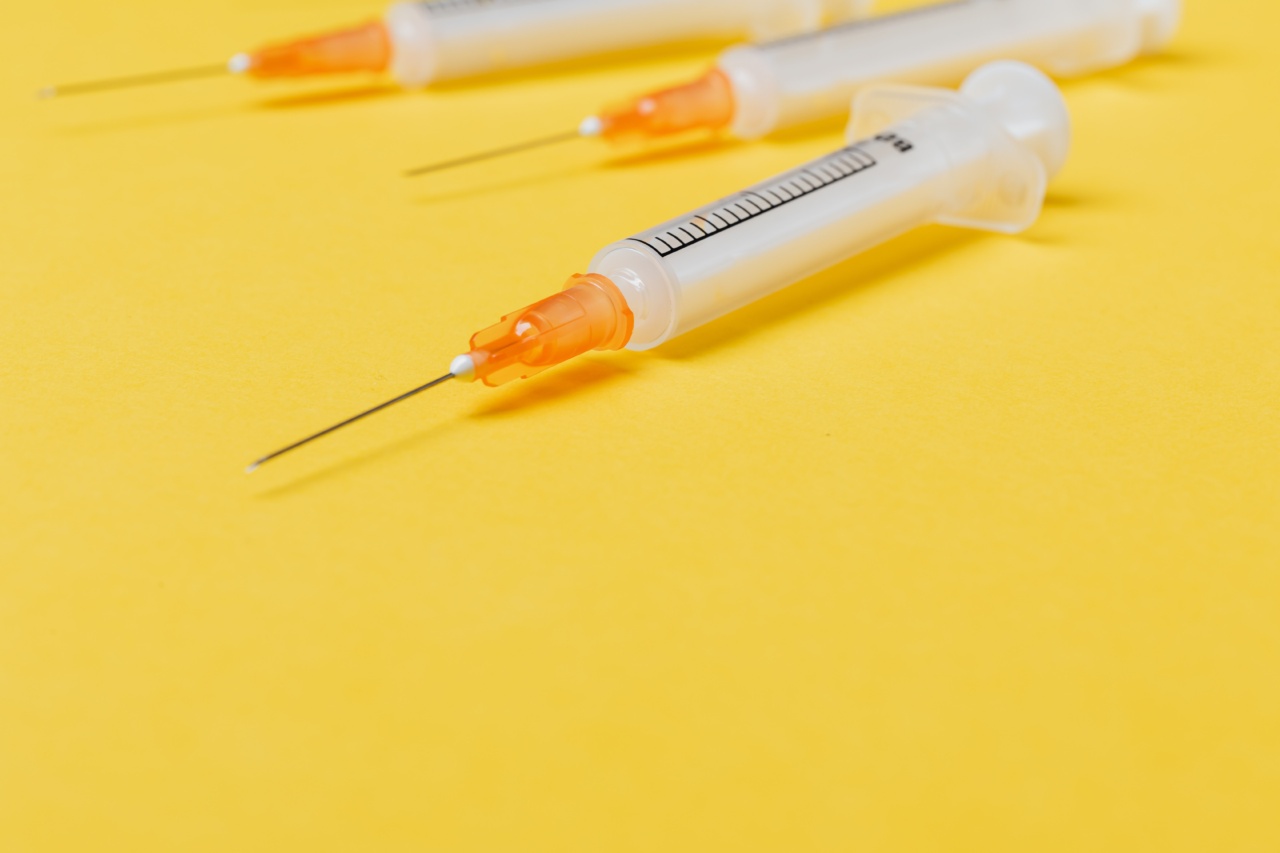Herpes is a common sexually transmitted disease that affects millions of people worldwide. While there is no cure for herpes, there are ways to manage the symptoms and prevent outbreaks.
In this article, we will discuss some effective remedies that can help you stop herpes in its tracks.
What is Herpes?
Herpes is a viral infection caused by the herpes simplex virus (HSV). There are two types of herpes: HSV-1 and HSV-2. HSV-1 is usually associated with cold sores on the mouth, while HSV-2 is typically associated with genital herpes.
However, either type of herpes can affect any part of the body.
Symptoms of Herpes
The symptoms of herpes can vary depending on the location of the infection. Common symptoms include:.
- Blisters or sores on the mouth, genitals, or rectum
- Pain or itching in the affected area
- Fever
- Headache
- Fatigue
Remedies for Herpes
While there is no cure for herpes, there are several remedies that can help manage the symptoms and prevent outbreaks:.
1. Antiviral Medications
Antiviral medications, such as acyclovir, valacyclovir, and famciclovir, can help reduce the severity and duration of herpes outbreaks.
These medications work by suppressing the replication of the herpes virus, which can help prevent the formation of new blisters or sores.
2. Pain Relievers
Pain relievers, such as ibuprofen or acetaminophen, can help reduce the pain and discomfort associated with herpes outbreaks. These medications can also help reduce fever and headache.
3. Cold Compresses
Applying a cold compress to the affected area can help reduce swelling and relieve pain. You can use a cold, damp cloth or a bag of ice to make a compress. Apply the compress for 10-15 minutes at a time, several times a day.
4. Warm Baths
A warm bath can help relieve the pain and discomfort associated with herpes outbreaks. Soak in a warm bath for 20-30 minutes, several times a day. Make sure the water is not too hot, as this can irritate the blisters or sores.
5. Essential Oils
Essential oils, such as tea tree oil and lavender oil, have antiviral and anti-inflammatory properties that can help reduce the severity of herpes outbreaks.
Apply a few drops of essential oil to the affected area using a cotton ball, several times a day.
6. Immune Boosters
Boosting your immune system can help prevent herpes outbreaks. Eat a diet rich in fruits, vegetables, and whole grains, and avoid processed foods and sugar. Drink plenty of water and get regular exercise.
You can also take immune-boosting supplements, such as vitamin C, vitamin D, and zinc.
7. Stress Reduction
Stress can trigger herpes outbreaks, so it is important to find ways to reduce stress in your daily life. Practice relaxation techniques, such as deep breathing, meditation, or yoga. Get regular exercise and plenty of sleep.
Take time out for yourself and engage in activities that you enjoy.
Prevention of Herpes
While there is no surefire way to prevent herpes, there are several steps you can take to reduce your risk of contracting the virus:.
- Practice safe sex by using condoms or dental dams
- Avoid sexual contact with anyone who has visible sores or blisters
- Avoid sharing personal items, such as razors or towels, with someone who has herpes
- Wash your hands frequently to prevent the spread of the virus
- Get tested regularly for sexually transmitted infections
Conclusion
While herpes can be a frustrating and sometimes painful condition, there are several remedies that can help manage the symptoms and prevent outbreaks.
By taking steps to boost your immune system, reduce stress, and practice safe sex, you can help reduce your risk of contracting the virus and manage any symptoms that may occur.






























